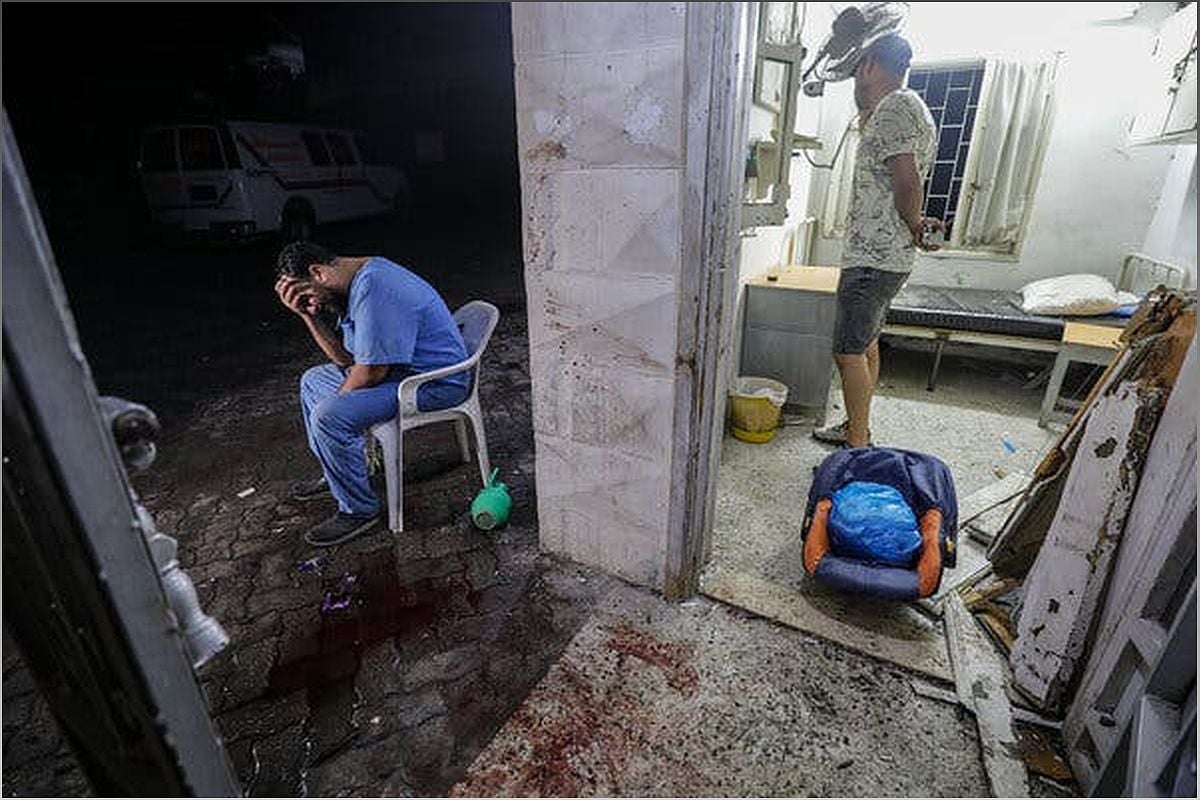The Growing Threat to Medical Facilities in Conflict Zones
In recent years, the safety of medical facilities and staff in conflict zones has been compromised, disregarding international law and causing detrimental consequences for healthcare. From intentional attacks on hospitals in Ukraine to the dire situation in Sudan, where medical facilities are no longer functioning, the impact is devastating. This article delves into the rising number of incidents, the affected countries, and the urgent need for greater protection of healthcare workers and facilities in armed conflicts.
The Escalation of Attacks on Medical Facilities
Explore the alarming increase in violent incidents targeting medical facilities in conflict zones, posing a grave threat to healthcare access and violating international law.
Over the past two decades, the frequency of attacks on medical facilities and staff in conflict zones has risen dramatically, disregarding international law and humanitarian principles. The recent explosion at the Ahli Arab Hospital in Gaza City is just one example of a growing series of violent incidents targeting healthcare facilities.

State actors have been the primary perpetrators of these attacks, pushing the boundaries of international humanitarian law. In Ukraine, Russia has carried out over 1,100 deliberate attacks on medical facilities since its invasion 21 months ago, committing war crimes in the process. Hospitals have been intentionally targeted, and areas with hospitals have been indiscriminately attacked, endangering the lives of both those injured by conflict and those in need of routine medical care.
Despite the clear violations of international law, there has been a lack of accountability and prosecution for these attacks. The consequences are dire, as healthcare for the injured and those with chronic conditions is jeopardized. Sudan is a striking example, with medical facilities no longer functioning, leading to a rise in neglected medical needs and the spread of deadly diseases such as cholera, malaria, dengue fever, and measles.
The Disturbing Trend: Rising Incidents in Conflict Zones
Examine the alarming surge in attacks on medical facilities in conflict zones, with a particular focus on the countries most affected by this dangerous trend.
The number of attacks on medical facilities in conflict zones has been steadily increasing, with 2022 recording the highest documented incidents since tracking began. While Ukraine remains the most affected country, other nations such as Myanmar, Afghanistan, Syria, and Yemen have also experienced a significant rise in violence against healthcare facilities.
In Ukraine, the situation is particularly dire, with over 1,100 attacks carried out by Russia since its invasion. However, it is not the only country grappling with this issue. Myanmar, Afghanistan, Syria, and Yemen have all witnessed a surge in attacks on medical facilities, hindering access to essential healthcare services for those in need.
These escalating incidents have sparked urgent calls for greater protection of healthcare workers and facilities in armed conflicts. However, with the outbreak of major wars in Ethiopia, Ukraine, Sudan, and Gaza, the safety of medical facilities remains a critical concern.
The Devastating Consequences for Healthcare Access
Highlight the profound impact of attacks on medical facilities in conflict zones, resulting in compromised healthcare access and dire consequences for affected populations.
Attacks on medical facilities in conflict zones have far-reaching consequences, severely compromising healthcare access for affected populations. The injured, as well as those with chronic illnesses and routine medical needs, are left without vital care and support.
In Sudan, the situation is particularly dire, with medical facilities no longer functioning. This has resulted in a devastating toll on the population, as fatalities caused by neglected medical needs are on par with those caused by violent injuries. The country is grappling with epidemics of cholera, malaria, dengue fever, and measles, further exacerbating the healthcare crisis.
These attacks not only violate international law but also undermine the fundamental right to healthcare. The long-term consequences for individuals and communities affected by these conflicts are immeasurable.
The Urgent Need for Greater Protection
Discuss the pressing need for enhanced protection of healthcare workers and facilities in conflict zones, emphasizing the importance of upholding international humanitarian law.
The escalating violence against medical facilities and personnel in conflict zones calls for immediate action to ensure their safety and protection. The international community must come together to uphold and enforce international humanitarian law, holding accountable those responsible for these heinous acts.
Efforts should focus on implementing robust mechanisms to prevent attacks on healthcare facilities, ensuring the safety of healthcare workers, and providing essential medical services to affected populations. It is crucial to establish accountability for those who violate international law and prosecute them accordingly.
By prioritizing the protection of healthcare workers and facilities, we can safeguard the right to healthcare for all, even in the midst of armed conflicts. It is imperative that we take a stand against these attacks and work towards a future where medical facilities are safe spaces dedicated to healing and saving lives.
